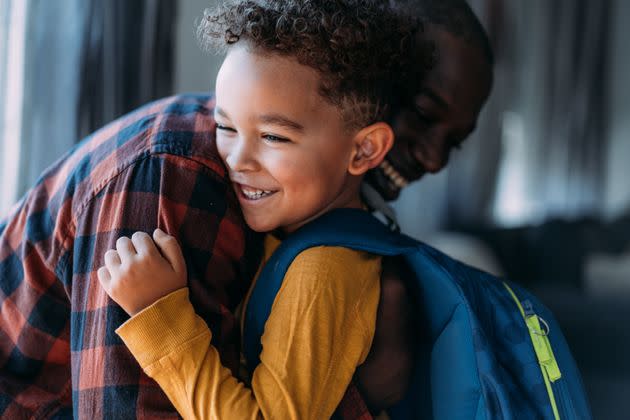Disabled Kids Are All But Erased In TV And Film. Here's How We're Fixing That.

Asawriter and director, many of my stories spring from personal experiences and aspirations. I’m often driven by a desire to create stories for kids who seldom see themselves represented on screen.
As a kid, I wanted to see little Black boys like me as the main character, running and playing outside. I also wanted to see real diversity on screen: kids with big Afro puffs and beads, kids with leg braces and kids with albinism, for example. In other words, I wanted TV to look like the neighborhood I grew up in — but it rarely did.
I kept this yearning in mind as I moved from poetry and prose to stage plays and television. It led to me writing episodes of the PBS Kids show “Work it Out Wombats,” which in many ways resembled the lives of me and my cousins at my grandmother’s house.
The narratives I crafted, earlier in my career, for platforms such as Netflix and Nick Jr. also prioritized inclusive storytelling. My first job as a children’s TV writer was for “Karma’s World,” an animated series created by Chris “Ludacris” Bridges about a lyrically gifted middle schooler juggling her rap dreams and problem-solving skills to navigate life.
And while racial and cultural representation are crucial, I noticed a void in storytelling about disability, especially in communities of color, and I wanted to help fill it. In 2014, I self-published a book called “The Most Beautiful Thing in the World,” which shed light on progressive blindness in a little boy. In the story, his mother helps the boy turn what could have been a tragedy into beauty. That project showed me just how much more ground there was to cover, and how many more stories were waiting to be told.
That’s how “Our Song,”an animated short film that explores the depths of a father’s love and the complexities of disability, came to be. In it, we meet a dad determined to shield his son from the pain he anticipates the boy will experience because of his disability. As the story unfolds, we realize that while the father’s actions are well-intentioned, he may be causing his son more harm than good.
With the help of stunning animation from my talented colleagues, “Our Song” invites audiences to explore the delicate balance between protection and empowerment, and to ponder the intricacies oflove, acceptance and the courage to embrace your identity.
The seed for “Our Song” was planted in a moment of reflection following a conversation with a close friend about the challenges she feared her son Christopher would face as he grew up. Christopher was born with ectrodactyly, a rare congenital condition affecting the hands and feet. Ectrodactyly, also known as split hand/split foot malformation, results in a cleft where the central fingers or toes should develop. Christopher was just a baby at the time, but his resilience and zest for life, coupled with his mother’s understandable fears for him, inspired me to write a story where disability wasn’t a barrier, but simply one facet of a vibrant life.
As I crafted his story, I realized that its purpose went beyond providing kids with a message of positivity. When parents see their families portrayed authentically, it fosters a sense of validation, empathy and belonging. Parents of disabled children deserve to see the complexities of their own lives and experiences, the moments of strength and vulnerability, depicted in books and on TV.
For two years, I’ve been working to bring “Our Song” to fruition as an animated film, collaborating with incredible animators such as Mathias Horhager and researchers such as Sheryl McGloffin-Pinto, and supporters who believe in how we’re trying to open up the world to families through storytelling.
As a father, I hope to tell a story of compassion and understanding that resonates with audiences of all ages. By challenging outdated notions of protection and freedom, I want “Our Song” to pave the way for a more inclusive and compassionate world.
As we finish up this December to prepare for the 2025 festival circuit, my goal is to make children feel less alone and to enlighten parents on the transformative power of love and acceptance. Disability should not be a barrier but a facet of humanity to be celebrated. By embracing stories that inspire empathy and change, we compose a melody of unity and understanding, where every child finds their song.
